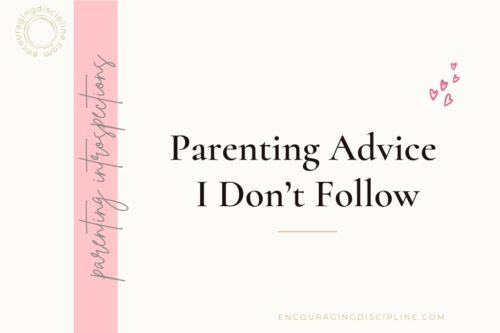Should I Let My Kids Play Video Games?
Your child has been nagging you about buying them video games. But you may have mixed feelings about it. You hear so much conflicting information. Is it bad for kids? Is it good for them? Will it turn them into addicts? What should you do?
I received a question from a friend about buying a video game console for her soon to be 7 year old. And I know many parents are having the same dilemma. So I’ll attempt to answer as many questions related to video gaming and kids as I can in this post.
Table of Contents
Should I Even Buy My Kids a Gaming Console?
Here’s what I have to say first: if your child isn’t asking for a video game, then don’t bring it up! The longer you can postpone this, the better. The older your child is, the better they understand the responsibility of handling the console, choosing appropriate games, respecting a contract, managing time, dealing with frustrations, and so on. If your child is having fun with the toys they have right now, there is no need to introduce a video game.
Who Is It For?
Now, if you are the one who wants to play, then be honest about that. You are an adult and you are free to get a game for yourself if that’s what you feel like doing. But be very clear on who the game is for because that will determine the way that you present it to your child and the kind of rules you will have around using the gaming console.
I hope this needs no mention, but I’ll remind you that, if your kid is watching you play, you still have to be mindful of what you are exposing them to. So that means only playing games that are age-appropriate in front of your child. Or none at all.
So, assuming that your child is asking for a gaming console, let’s continue to the next question many parents have:
Are Video Games Bad for Kids?
The short answer is not necessarily. But let’s unpack that. It really depends on what kind of video games we’re talking about, the amount of time kids spend playing them, and what they’re taking away.
Violent Video Games
There are numerous studies that show a link between violent video games and children’s behavior. Notably, there seems to be an increase in children’s impulsiveness, aggressiveness, and a decrease in empathy. But the changes don’t seem to be huge and they are affected by the degree of violence in the game, the amount of exposure, and other factors. The research is ongoing in this field and definitely something to keep an eye out for.
The bottom line here is that young kids should not be playing violent video games. Period. If nothing else, they can be scary and they have to develop defenses against the perceived danger in the games. You wouldn’t expose your child to a crime or war. Why would you do it on a screen when their brain isn’t developed enough to differentiate between what’s real and fictional? Not to mention that many violent video games present sexual behaviors, violence against women, crude language, sexism, racism, homophobia, and other unwanted elements. So for me, violent games are an easy no.
Negative Effects on Well-Being
Other, more obvious, effects of video gaming are kids skimping on sleep, munching on unhealthy snacks instead of sitting down at the table for meals with their family, less time spent playing with toys or outside, boredom or lack of interest in academics or other conventional toys, and so on.
I will say that video games are highly addictive. They are made to be that way. They produce high quantities of feel-good hormones in the brain, which makes them very enjoyable. And there is a risk that other activities may seem less attractive and more boring in comparison.
How to Counter the Negative Effects of Video Games
My personal stance on it is that if you can offer your child enough opportunities to practice empathy, to solve problems peacefully, if they have a stable, loving home environment, and if you talk to them about the things that are wrong or right, real or fictional in video games, then they should be ok. As always, my motto is everything is fine in moderation.
Video games shouldn’t replace human interaction, connection time, physical activity (important for gross motor skill development), activities that improve fine motor skills, creating, sleep, good eating habits, and time outside.
Related: Toys and Games for All Ages
Can Playing Video Games Be Good for Kids?
The short answer is some games can be good for kids. They can help to relieve stress and improve hand-eye coordination, perception, decision-making, and even cooperation. Kids can also build confidence as they learn to navigate the games and advance to more challenging levels.
If you’d like to read more about the different studies and their findings that show the positives of video games, there is a nice, quick summary by Dr. Peter Gray in his article, Cognitive Benefits of Playing Video Games.
There are some cooperative or empathy-building games for younger kids, but they are rare or nonexistent as kids get older. I think this is a problem that parents can demand to be changed. Also, if we purchase more games that are fun and kind rather than violent, fast, and shallow, then we can tip the demand scale in favor of games that are better for our children.
Play Video Games as a Family
Additionally, playing video games together, as a family, can be a good bonding experience. Playing video games can indeed become “quality time”, as long as we interact with our kids, talk about what they’re playing, the choices they’re making in the game, and even take turns or play together. If our kids enjoy playing, then it helps if we show interest in their passion.
The bottom line is there seem to be some benefits to playing video games. At least they can be relaxing and a good opportunity to spend time together.
Related: The Best Picture Books for Kids
Which Gaming Console Should I Get?
In 2020, the top gaming consoles are the Nintendo Switch, the Xbox, and PlayStation 5.
Before you purchase a gaming console, I advise you to do your research well to see which is the best for your family. Check what games each company offers. It is good to know that not all games can be played on all consoles. For example, the Mario games only work on Nintendo Switch. So read up on all those details to make an informed decision.
Also, be aware and check all the costs involved because you may have to purchase a subscription to play games and I believe there is a difference in game prices based on which brand you go with.
We bought the Xbox a couple of years ago and are happy with the child-friendly games we have found so far. However, my husband decided to get the Nintendo Switch console as well because they offer more family-friendly games.
What Age Is Appropriate for Video Games?
Between 6 and 7 seems to be a reasonable age to introduce video games to kids. I am less comfortable with letting kids younger than that play video games. However, with that said, if you have younger kids who see their older siblings playing, they will start playing video games at a younger age. And that is the case in our family as well. So you can’t really draw a hard line as to what age your child should start playing.
I will say that, since my daughter was older when she started playing video games, she doesn’t seem as addicted to them. Although other factors could be involved, such as her temperament or her ability to self-regulate.
But I will go back to my recommendation from the beginning: if your child isn’t showing an interest in video games, then delay it. Usually, they will start asking for them when they’re in school and they hear their classmates talk about them.
Which Video Games Should My Child Play?
My advice is to always do your research before purchasing a game. Just because your kids’ friends play a game doesn’t mean it’s age-appropriate or aligned with your parenting goals and family values.
I recommend a three-step process in deciding which game to buy.
1. Check Common Sense Media
The first step before buying any game is to check Common Sense Media. This is an independent, nonprofit organization that rates all kinds of media (books, games, movies, TV shows, and more) according to multiple criteria. I have this website bookmarked on my phone and I recommend you do the same.
The way it works is like this: you enter the name of a game in the search box, then select from the list the product you are interested in learning more about. The results will show you the recommended age by Common Sense Media, what parents say and what kids say. This may be different from the manufacturers’ recommendation. There is a review of the game, with warnings for the parents, and questions or topics to discuss with the kids about the game. There is also a rating of different features of the game, such as positive messages, positive role models, ease of play, violence, sex, language, consumerism, drinking, drugs, and smoking.
The other way you can search on Common Sense Media is by category. They have compiled lots of lists with recommendations. You can enter anything in the search box from cooperative games to games for Nintendo Switch, and then narrow down your search from there.
2. Preview the game
The second step in deciding which game to get is to preview it. There are options here. The easiest one is to look the game up online. You will find many videos on Youtube of people playing games, so you can have a look at the graphics, the action, the difficulty level, and so on.
The other option is to check out the game from your local public library and try it out.
3. You decide
At the end of the day, remember that you are the parent and you are the one making the final decision. Your child may come up with a suggestion, based on what they hear from their friends. They may even insist, plead, and beg. But remember that your family may be different from other families, and this is something to keep reminding your child. Just because one family is ok with one game doesn’t mean you have to be also.
When You’re Not OK With the Game
“But my friend plays (insert whatever trendy game that’s totally inappropriate for your 7, 9, or 12-year-old). Why can’t I?”
There will come a time when your child either sees a commercial or hears about a game from a friend and will start asking you to buy it.
My go-to phrase is: “Each family has its own rules. That game may be ok in your friend’s family. In our family, we play different games.” Then go ahead and explain why. You may say, “There is violence, people are killed, property is destroyed, and in our family we believe those things are wrong.” Or whatever the case may be.
As kids get older, you can share with them some of the research on video games and the developing brain. They love learning about science and it helps to get their buy-in and cement their own opinions. It also gives them information to defend their choices if they are ever pressured by their friends to play certain games that don’t align with your family values.
How Long Should Kids Spend Playing Video Games?
The recommendations for screen time have changed recently. Screens have become a big and important part of our lives in recent years, so the two hours a day recommendation from the American Academy of Pediatrics is no longer valid. Now the recommendations focus more on “encouraging healthy habits and limiting activities that include screens”.
It can be hard to say how long children of a certain age should spend playing video games. Not all 7-year-olds are the same. All children develop differently and have different temperaments and energy levels.
In my family, we have agreed on 1.5-2 hours of screen time for entertainment per day. Sometimes that time is spent on video games, other times it’s watching cartoons or playing games on the tablet, or a combination of these.
How much time your child spends on screens, in general, has to be a conversation in your family and something you all are comfortable with.
Create a Contract
It’s important to have a clear rule about how much time is allotted to screens. Communicate to your child how much screen time they will get, explain why, and then let them decide when they want to have it. You can offer options to keep it within reason. Is it going to be at 5 o’clock in the afternoon in one session, or one hour in the morning and one in the afternoon before dinner? Talk with your child and decide together.
Another thing that needs to be discussed is expected behaviors when playing. Those may include not throwing the controller when they get mad, asking for help when they’re stuck, not clicking out of the game, browsing the online store, and so on. Also, talk about consequences if you are willing to enforce any.
The other important thing to agree on is how to end video game time. Ask your child if they want a reminder, a timer, or whatever suits them. Then discuss how you can help them stop playing if it’s really hard for them.
Expect More Pushback
By introducing video games to your child’s play repertoire, you are creating more work for yourself. There will be more limits to hold.
Be prepared to keep reminding your child of the rules and enforce the contract over and over again. Be patient. Your child most likely lacks enough self-regulation, so even though they agreed on a contract with you, that doesn’t mean they have the capacity to follow through and respect the agreement. They may still throw the controller, they will still be mad and even have a tantrum if they have to stop playing. And that’s ok. You gently remind them that you are there to help them and they will get better at it by trying again and again.
Watch How Your Child Is Feeling
If your child is grumpy and aggressive, for more time than just the frustration of having to put down the controller, feeling extremely tired the next day, or constantly asking to play the video game, then it may be time to dial it down a bit. Maybe instead of daily video game time, they can have it every other day or only on the weekend, or only on weekdays. There has to be ample time to recover.
We’ve had “recovery or detox days” when we took a break from video games or screens in general for a few days or even a week. Children feel better afterward and are better able to manage their emotions.
Playing video games is an intense activity for the brain and the brain needs time to reset. And we know that playing with their hands, connecting time, and being outside are all activities that recharge and regulate children.
Secondary Advantages of Gaming Consoles
I will say that, ever since we bought our Xbox, we haven’t been using our DVD player.
The Xbox console also plays DVDs and Blu-Ray discs, so I am happy about the reduced clutter. So, if you are not into gaming, but more interested in keeping a relatively organized house and less cluttered, like me, then this may be a plus for you :).
Questions to Consider Before Purchasing a Video Game Console
- What types of games do I want my child to play?
- What will I say to my child when they ask for a game I don’t want them to play yet?
- What will I teach my child to say to their friends if they’re being pressured to play a game that’s against our family rules?
- How long will I allow my child to play?
- Is playing video games going to be earned or a routine activity?
- Am I ready to enforce the new limit around playing video games consistently?
- Will my child play online with other players or just individually?
My Kids’ Favorite Xbox Games
My kids are 5 and 7. Their favorite games are Spyro Reignited Trilogy, Zoo Tycoon, Dragons: Dawn of New Riders, Super Lucky’s Tale, and Yooka-Laylee. We have purchased some of these games, and some we’ve checked out from our local public library.
Final Thoughts
At the end of the day, even though introducing video games brings with it more drama and more ongoing discussions to be had, it’s probably a good idea to have them starting at an age when we can have reasonable discussions with our kids.
Just like with anything else, there will be a lot of learning opportunities for our children if we are willing to have open discussions with them about how to handle and navigate gaming responsibly. We do this with sex, drinking, and driving, and we should do it with gaming and social media as well. Our kids need to be knowledgeable and prepared.








u should, just implement the parental controls and research what your kid asks for and determine if its appropiate or not on your own